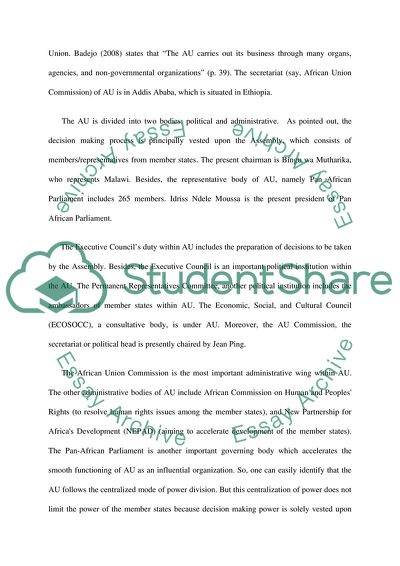Cite this document
(“The Organization of African Unity Known as African Union Research Paper - 1”, n.d.)
The Organization of African Unity Known as African Union Research Paper - 1. Retrieved from https://studentshare.org/social-science/1750488-the-organization-of-african-unity-now-known-as-african-union
The Organization of African Unity Known as African Union Research Paper - 1. Retrieved from https://studentshare.org/social-science/1750488-the-organization-of-african-unity-now-known-as-african-union
(The Organization of African Unity Known As African Union Research Paper - 1)
The Organization of African Unity Known As African Union Research Paper - 1. https://studentshare.org/social-science/1750488-the-organization-of-african-unity-now-known-as-african-union.
The Organization of African Unity Known As African Union Research Paper - 1. https://studentshare.org/social-science/1750488-the-organization-of-african-unity-now-known-as-african-union.
“The Organization of African Unity Known As African Union Research Paper - 1”, n.d. https://studentshare.org/social-science/1750488-the-organization-of-african-unity-now-known-as-african-union.


